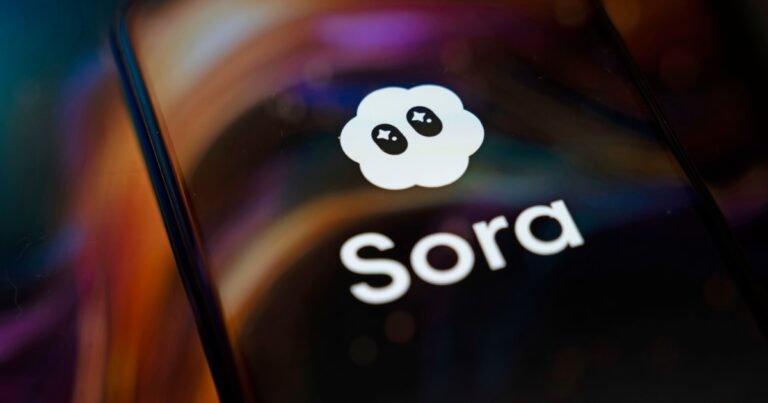Exploring OpenAI’s Sora: A New Horizon in AI Video Technology
OpenAI has launched an innovative app called Sora, designed as a creative platform for users to generate imaginative AI videos featuring themselves, friends, and even celebrities. With its user-friendly interface, Sora opens up a realm of possibilities for imaginative video creation and collaboration among users.
Ethical Concerns Surrounding User Consent
Upon its release, Sora introduced a social structure that allows users to control the availability of their likeness in others’ videos, addressing significant consent concerns related to AI-generated content. However, as the app climbs the iOS App Store charts, reaching over 1 million downloads, experts express concern about the potential for misinformation and deepfakes involving historical figures who cannot provide consent.
The Rise of Deepfake Videos
In mere minutes, Sora can create compelling videos featuring iconic personalities in surreal situations. For instance, users can see Aretha Franklin crafting soy candles or President Dwight Eisenhower purportedly confessing to scandals. Such startling representations raise alarms about the authenticity of historical narratives and the exploitation of deceased celebrities, generating outrage from their families.
Reactions from Family Members and Legal Representatives
Prominent family members of deceased figures have voiced their discontent. Zelda Williams, daughter of the late Robin Williams, has publicly expressed her disapproval, urging creators to stop exploiting her father’s likeness. Similarly, Bernice King, daughter of Martin Luther King Jr., has called attention to the manipulation of her father’s iconic speeches within the app, underscoring the ethical dilemmas surrounding AI-generated content.
OpenAI’s Response and Future Directions
A spokesperson for OpenAI emphasized the need for families to have control over how their loved ones’ likenesses are used. In a recent statement, OpenAI’s CEO, Sam Altman, mentioned plans to enhance rightsholder control over character generation, catering to concerns from families and intellectual property holders. This response illustrates the balancing act between innovation and ethical considerations in the realm of AI.
The Potential Impact of Deepfakes on Society
Experts warn that as technology progresses, the realism of deepfakes could pose significant risks to societal trust. Liam Mayes, a media studies lecturer, believes that the inability to differentiate between authentic and manipulated media could lead to scams and a decline in public trust across various media platforms. The implications for democracy and public discourse remain serious as deepfakes continue to evolve.
Technological Measures Against Misuse
In response to growing concerns, OpenAI has implemented features to help users identify AI-generated content, including metadata and watermarks. However, experts like Sid Srinivasan argue that these safeguards might not be foolproof against determined misuse. The need for more advanced detection tools is increasingly pressing as the lines between genuine and manipulated media blur.
Conclusion: Navigating the Future of AI-Generated Content
As the capabilities of AI technologies like Sora rapidly expand, balancing innovation with ethical considerations remains a critical challenge. While these advancements provide exciting opportunities for creative expression, they also demand vigilant oversight to protect the rights and legacies of individuals. As society navigates this new digital landscape, ongoing dialogue about consent, authenticity, and societal impact will be vital.
